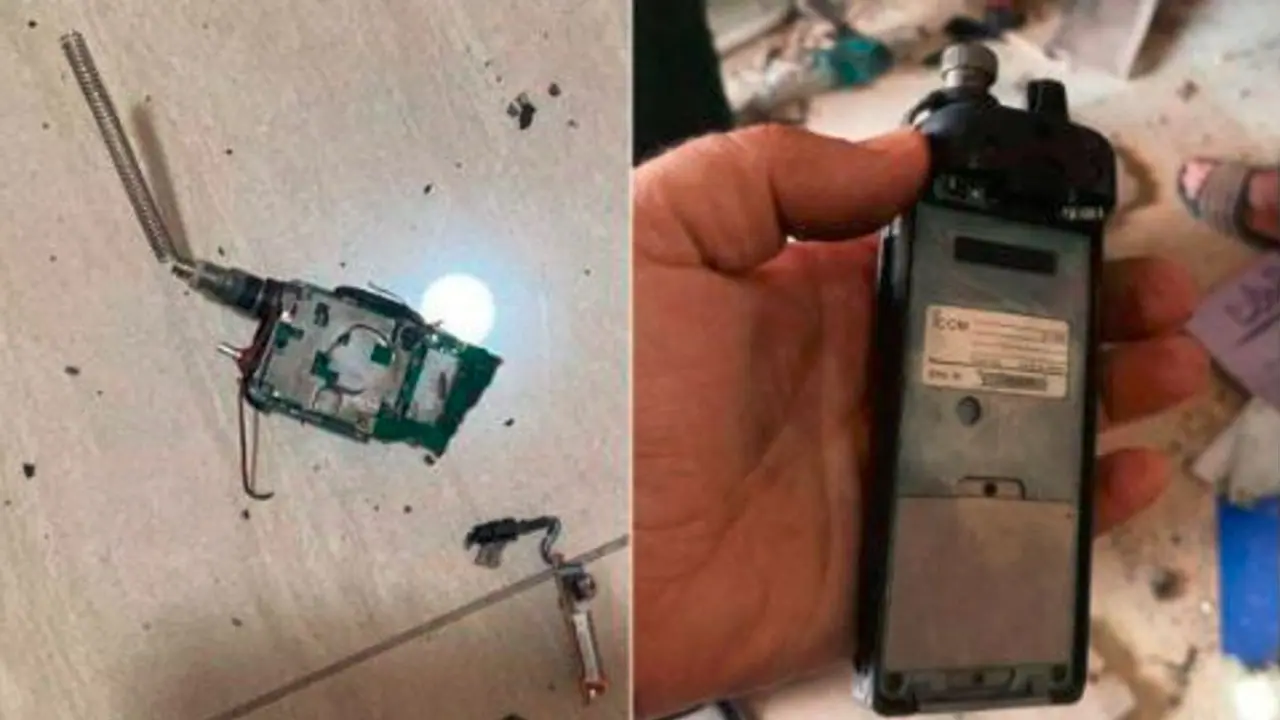Israeli Prime Minister Benjamin Netanyahu on Monday confirmed his country's role in the September pager attacks on Hezbollah, revealing it was advanced to prevent the exposure of a secret intelligence operation.
In a revealing Knesset speech on Monday, Israeli Prime Minister Benjamin Netanyahu confirmed that Israel was behind a series of devastating attacks on Hezbollah in September, revealing that the operation was brought forward after concerns that a secret Israeli intelligence method was about to be uncovered. Netanyahu disclosed that the attack, initially planned for October, was accelerated to prevent the planned operation from being exposed.

The attacks, which included a massive pager explosion on September 17, led to a devastating blow to Hezbollah, an Iran-backed group operating in Lebanon. Netanyahu recounted how the decision was made to act swiftly after intelligence revealed that the tactic was close to being uncovered. He emphasized that he rejected advice to inform the US ahead of time, fearing the disclosure could leak or provoke resistance, which might have undermined the operation’s success.
“From the moment I learned that this was about to be revealed, I decided that it was necessary to act immediately,” he claimed. “There were those who argued that the US should be informed ahead of time. I argued that the US should not be informed because this could lead to either resistance or a leak, which is the same thing. A leak would have immediately demonstrated the effectiveness of the move. I denied it outright — and we acted.”
The September strikes involved detonating thousands of pagers and walkie-talkies in Hezbollah-controlled areas, including southern Beirut. This coordinated attack killed 39 people and injured over 3,400, many of whom suffered severe wounds, including eye injuries and amputations.
Hezbollah officials have since called it the "biggest security breach" the group had experienced in nearly a year of conflict with Israel. A Hezbollah source later revealed that the attacks rendered 1,500 of their fighters unable to operate due to severe injuries, which also included blinding and loss of limbs. Tehran’s ambassador to Lebanon, Mojtaba Amani, was among the wounded.
In his speech on Monday, Netanyahu also said that in the subsequent operations, 70-80 percent of Hezbollah rocket and missile capabilities were destroyed.

Israel PM speaks about deliberations ahead of Nasrallah's assassination
Netanyahu also discussed the internal deliberations surrounding the assassination of Hezbollah’s leader, Hassan Nasrallah. "A legitimate argument arose that such an action could lead to the expansion of the campaign. There was a completely legitimate debate, and there was also a second demand," he said.
"The demand was to update and coordinate this attack with the US. Again, with all due respect to our friends in the US, I rejected it outright," he added.
The Israel PM further revealed that the debate over whether to strike Nasrallah continued on his September flight to New York ahead of his speech to the UN.
“Two hours later, I called the defense minister and IDF chief of staff, and said that we had to eliminate the man. When we landed in New York, we convened the [security cabinet]. There was almost an absolute majority. One person argued differently, but the entire cabinet got behind it, and we made the decision, it was carried out — and the rest is known," Netanyahu said.

Last week, Omer Dostri, a spokesperson from Netanyahu's office, confirmed for the first time that Israel was behind the pager attacks. "Israeli Prime Minister Benjamin Netanyahu approved pager attacks that dealt a deadly blow to the Iran-backed Lebanese armed group Hezbollah in September," he had said.
Following the pager attack, Israeli forces continued their offensive, culminating in a limited ground invasion of southern Lebanon and the assassination of nearly the entire leadership of Hezbollah. The operation marked a significant escalation in the ongoing Israel-Hezbollah conflict, which had intensified following Hezbollah’s rocket and drone attacks on northern Israel, starting in October 2023.
Also read: Israel destroyed active nuclear weapons research facility in Iran, say researchers
These attacks came in the wake of the October 7 massacre by Hamas, which led to the deaths of 40 Israeli civilians and 61 soldiers along with numerous casualties in cross-border skirmishes with Hezbollah. Netanyahu’s cabinet later confirmed the actions, which also included the destruction of key Hezbollah communications infrastructure.
The confirmation of the attacks has raised questions about the political and military opposition Netanyahu faced within his own ranks. Reports suggest that senior officials, including then-Defense Minister Yoav Gallant, were against the timing of the attacks. Gallant was fired by Netanyahu shortly after these events, citing disagreements over military strategy and the handling of the October 7 assault.
